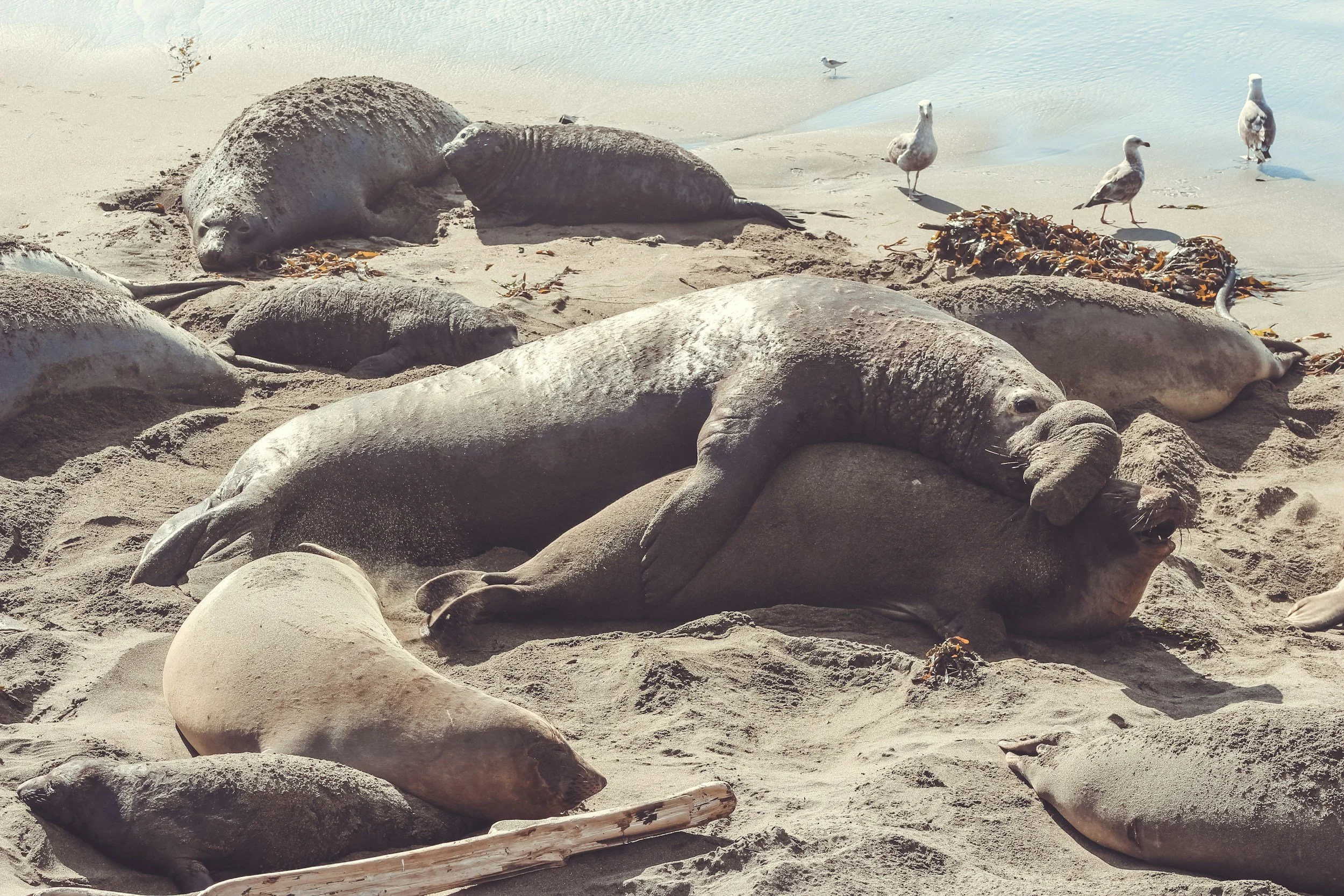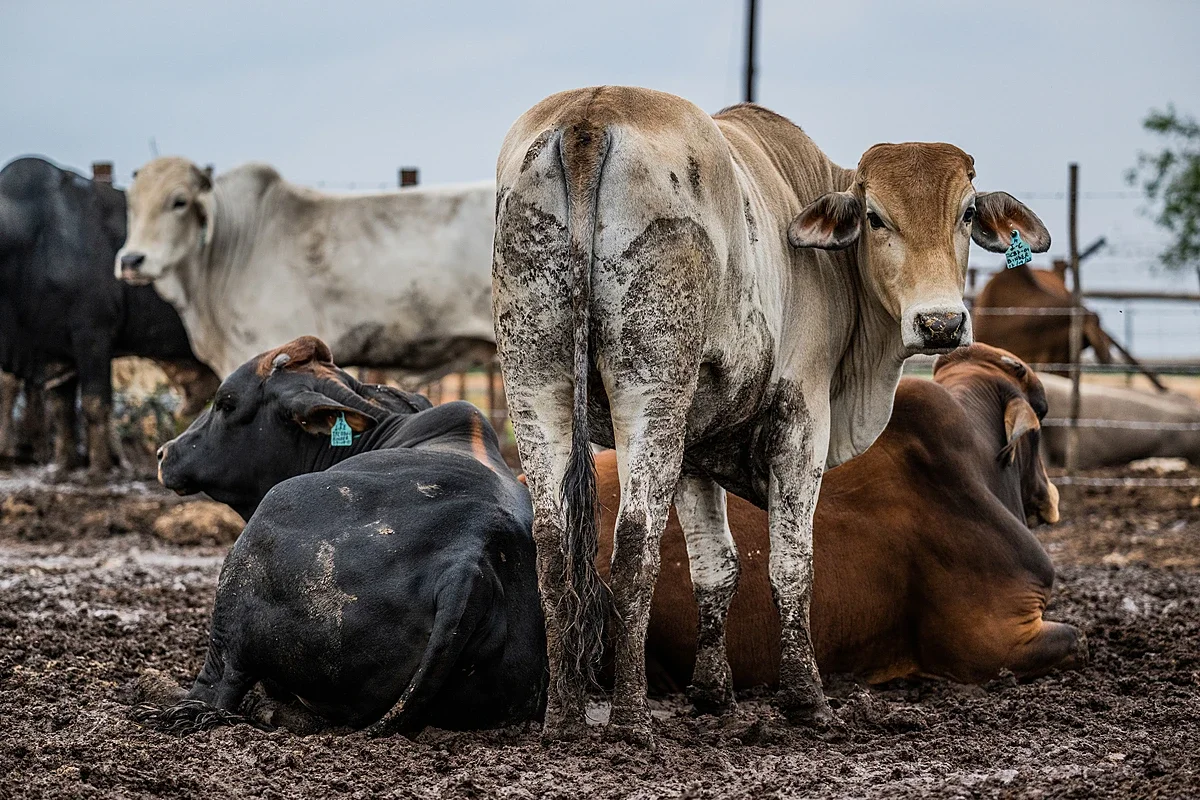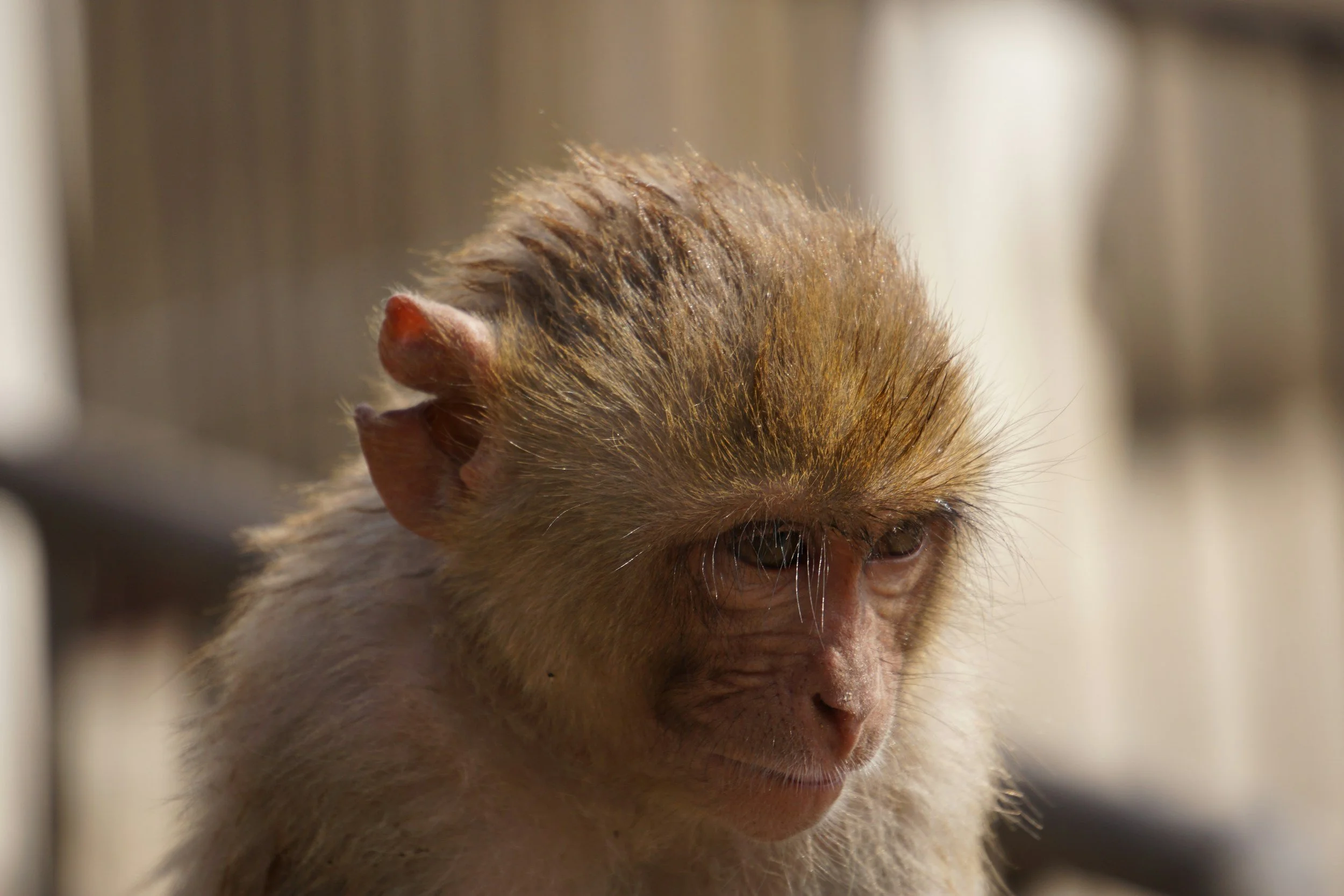Elephant seals in South Atlantic ocean in ‘dramatic decline’ after bird flu outbreak, new report finds
Aerial imagery reveals a 47% drop in breeding female elephant seals on South Georgia Island, with scientists linking the unprecedented decline to the ongoing bird flu outbreak.
The elephant seal population in South Georgia has declined by nearly half following the outbreak of bird flu (HPAIV), new research reveals.
Using dedicated aerial imagery, scientists recorded a 47% drop in the number of female elephant seals at the three largest breeding colony beaches at the sub-Antarctic island in 2024, compared to 2022.
This number is in stark contrast to historical interannual variations, which usually remain within 10%.
The alarming reduction equates to an estimated 53,000 female elephant seals who failed to return for breeding.
While considering other possible explanations, the report – published in the scientific journal Communications Biology – ultimately concluded that bird flu was the main cause.
“The temporal overlap of the arrival and prevalence of HPAIV in the elephant seal population during this period, coupled with the observed reductions, suggests a correlation that is too pronounced to be coincidental.””
Since its well-documented emergence in Europe during 2020, the virus has decimated wildlife populations globally. The first suspected avian case was reported in the sub- Antarctic and Arctic region in September 2023.
At the beginning of 2024, tourists on South Georgia island reported how they were unable to visit the grave of the explorer, Ernest Shackleton, due to the number of dead seals blocking the way.
As such, Connor Bamford, lead author of the report, said that he was aware there would be a high number of mortalities of elephant seals, but “it wasn’t until we got this before-and-after comparison that we could see how extensive it was, ” he told The Guardian.
The devastating findings follow the loss of 67% of female elephant seals in the Peninsula Valdés population, after the virus spread to South America in early 2023.
Located in Argentina, the Peninsula Valdés is among four genetically distinct populations of the species within the Southern Hemisphere. The population in Argentina had been growing at between 1% to 3% annually for the past five decades, but the outbreak of bird flu has resulted in pup mortality of 97%. Under worst-case scenarios, the Pensinsula Valdés population will not make a full recovery until the next century.
While the average rate of female absence at South Georgia is lower than that observed at Peninsula Valdés, the losses remain significant. “If the South Georgia population responds similarly to the modelled outlook at Peninsula Valdés, the future is bleak,” reads the report.
The report stressed the need for further research into the long-term effects on the elephant seal population in South Georgia, which, due to its remote location, lacks regular monitoring.
The last estimate of the South Georgia population – carried out in 1995 – suggested that it represented over half the global population of the species, with breeding sites located around the whole of the island.
A major predator, elephant seals play an essential role in the Antarctic ecosystem. Recently, scientists discovered how seal droppings enrich the soil, and enabled communities of mosses, lichens, and invertebrates to flourish.
What can you do?
Learn more about avian influenza and how H5N1 is spreading to nearly every corner of the globe. Read: The bird flu is leaving a trail of destruction in the animal kingdom. Are humans next?
It’s clear: Factory farming isn’t just cruel - it’s a ticking time bomb for public health, with animals already bearing the brunt of the suffering. Sign up for our 30-Day Plant-Powered Challenge. You'll receive free recipes, expert advice, and daily support delivered straight to your inbox.
We Have A Favor To Ask…
Species Unite amplifies well-researched solutions to some of the most abusive animal industries operating today.
At this crucial moment, with worldwide momentum for change building, it’s vital we share these animal-free solutions with the world - and we need your help.
We’re a nonprofit, and so to keep sharing these solutions, we’re relying on you - with your support, we can continue our essential work in growing a powerful community of animal advocates this year.





